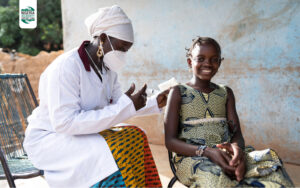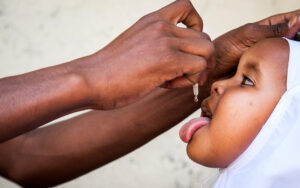
Dispelling the Myths Around HPV Vaccines
Deep fakes, fake news, photoshop, generative AI as research tools, super-fast news cycles are only some of the ways that our world has evolved today.
• One in every five of the world’s out-of-school children is in Nigeria.
• Even though primary education is officially free and compulsory, about 10.5 million of the country’s children aged 5-14 years are not in school.
• In some states, kids are leaving school unable to read or write.
• Tell the government to make sure kids don’t miss out on school due to conflict or crisis.
• Help empower girls — demand that no girl stays at home while her brother is in school.
• Ask leaders to invest in quality education, so every child leaves school able to read and write.

Deep fakes, fake news, photoshop, generative AI as research tools, super-fast news cycles are only some of the ways that our world has evolved today.

Nigeria’s strength lies in its vibrant youth, representing an estimated 74.9 million individuals aged 18-35 as reported by populationpyramid. As this demographic continues to grow,

In Nigeria’s intricate healthcare landscape, a hidden adversary looms large, threatening the well-being of millions. Human Papillomavirus (HPV), an insidious and widespread virus, operates in

Understanding HPV and Its Link to Cervical Cancer in Nigeria: HPV (Human Papillomavirus) is a common virus that can affect anyone. In Nigeria, it’s a

In the heart of Nigeria, amidst its rich cultural diversity and breathtaking landscapes, lies a pressing issue that demands our attention and action: the health

Immunization is one of the most effective ways to protect people from preventable diseases. In Nigeria, routine immunization programs have helped to save millions of

Happy World Vaccine Day!Today, we’re celebrating the importance of vaccines in protecting our health and preventing diseases. Nigeria Solidarity Support Fund (NSSF) is committed to

Let’s talk about the importance of accountability and governance in the Nigerian healthcare system. It’s no secret that the lack of accountability and weak governance

The World Immunization Week 2023, which runs from April 24th to April 30th, under the theme “The Big Catchup” emphasizes the importance of catching up
WhatsApp us